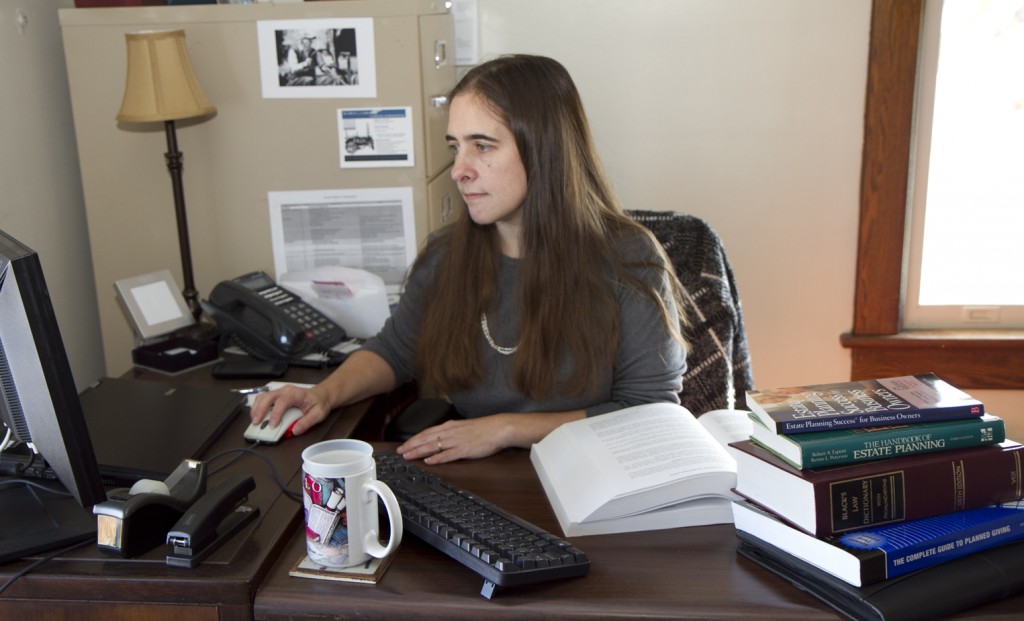Long before she ever entered Washington and Lee’s law school, Robyn Hill knew that she wanted to work in “some kind of charitable setting.” She decided to specialize in estate planning because it seemed best-suited to her goal of “not hurting one person to help another.”
As a 31-year-old first-year law student, Robyn was older than most of her fellow students. Her road to Washington and Lee was unconventional—she had taken a break from college in 1986 to raise the two sons she had with her husband, David, then working as a title examiner. In January 1992, Robyn started attending college classes at night, earning a degree in English from the University of Washington.
But Robyn’s English degree did not put her on a satisfying career path. So she set her sights on being a lawyer. Adept at test-taking, Robyn walked in “cold”—without preparation—to take the LSAT, the admissions test that most aspiring lawyers dread. She did astonishingly well, scoring 175 out of a possible 180 points, which put her in the top 1% of test takers.
Today, Robyn smiles and shrugs at this accomplishment: “Two parts of the test—the reading comprehension and analytical reasoning parts—tend to be easier for most people than the third part, the ‘logical reasoning’ section. A lot of law students sweated the logic questions. But doing logic problems has been a hobby of mine since I was in high school. So I enjoyed that part of the LSAT and did well on it. But I don’t believe high test scores are a good way of determining who will be successful ultimately.”
Her high LSAT scores won her admission into Vanderbilt, William & Mary, and the five other law schools to which she applied. Washington and Lee sweetened its offer with a $10,000 per year scholarship. That, plus the attractiveness of Lexington, Va., for raising children, caused her and David to choose Washington and Lee.
As a mother, Robyn was an anomaly in her law class. Only eight of her peers had children, and all but one of them were men whose wives were the children’s primary caregivers. Robyn learned to be highly disciplined with her time—maximizing every study opportunity during the day, so that she could spend some time with her husband and sons in the evening.
After graduating, she worked with two private law firms in Richmond, Va., representing non-profit organizations and doing charitable estate planning. She next spent several years as divisional planned giving director for the Salvation Army in the Washington D.C. area.
She responded to EMU’s advertisement for a planned giving officer early in 2011, because she liked the Christian values and overall ethos that she found on EMU’s website. When she interviewed with executive director of development Phil Helmuth, her interest was further kindled: “He stressed the importance
of relationships and of protecting our donors, of making every effort to ensure that they are not harmed by their giving. It must be a win-win situation, where they are helped by their gifts and EMU is too.
“EMU would never let someone, for example, put all their assets into a gift annuity with us,” she said. “It would be a fixed income for them and they wouldn’t be able to get to what they needed if they had an unexpected change in their life circumstances. The annuity is a wonderful way to get some secure and stable income, but we would want them to keep some of their money out of the annuity.”
Robyn visits EMU supporters to give them information about estate planning and to answer their questions, without charge. She helps them to understand ways that they can, for instance, simultaneously provide for themselves or their spouses, derive tax benefits, and make a contribution to EMU. But she always recommends that they double-check her advice with independent legal and tax advisers.
